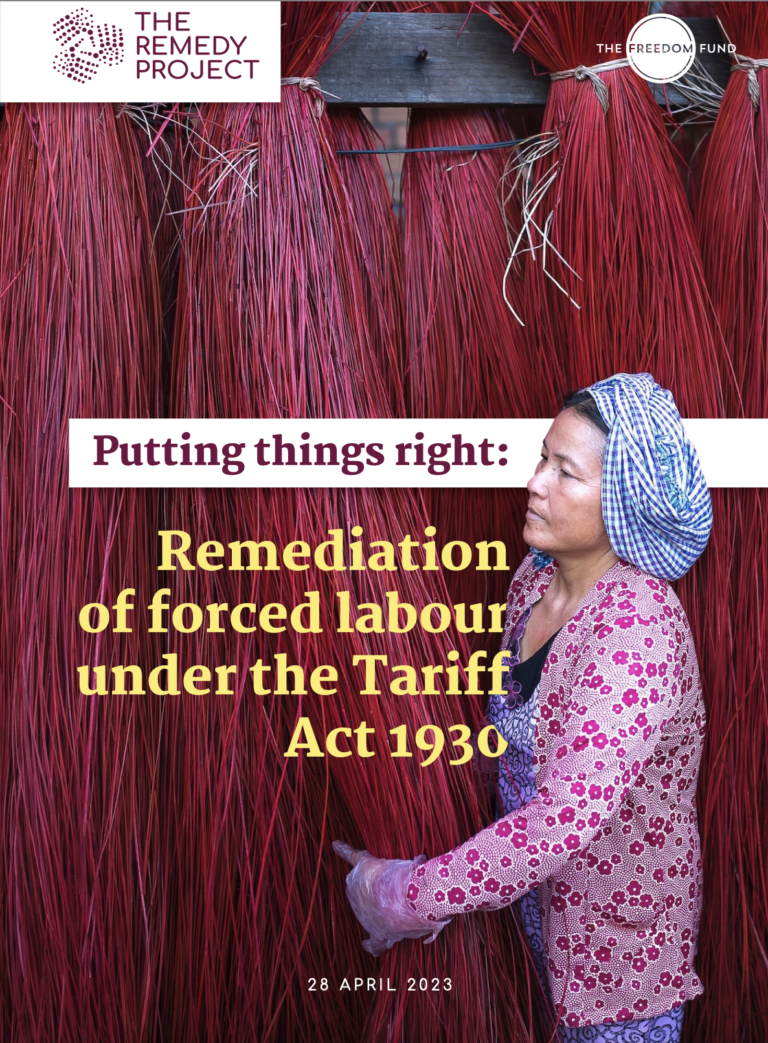This report adopts the UN Guiding Principles on Business and Human Rights (UNGPs) definition of ‘remedy’. “Remedy’, as defined in the UNGPs, refers to the provision of substantive remedies to people whose human rights have been violated to help make good that harm. According to the UNGPs: “Remediation or remedy refer to both (a) processes of providing remedy for an adverse human rights impact, and (b) the substantive outcomes that can counteract, or make good, the adverse impact. These outcomes may take a range of different forms, such as apologies, restitution, rehabilitation, financial or non-financial compensation, and punitive sanctions (whether criminal or administrative, such as fines), as well as the prevention of harm through, for example, injunctions or guarantees of non-repetition”.
As will be discussed later, ‘remedy’, as defined in the UNGPs is not the same as the concept of ‘remediation’ as understood and applied by CBP. As explained more fully in section 5 below, CBP effectively equates ‘Remediation’ with the removal of the presence of any ILO indicators of forced labour. Unless otherwise stated in this report, the term ‘remedy’ therefore refers to the UNGP definition above. While the term ‘Remediation’ refers to CBP’s concept of remediation (i.e., the removal of ILO indicators of forced labour).

